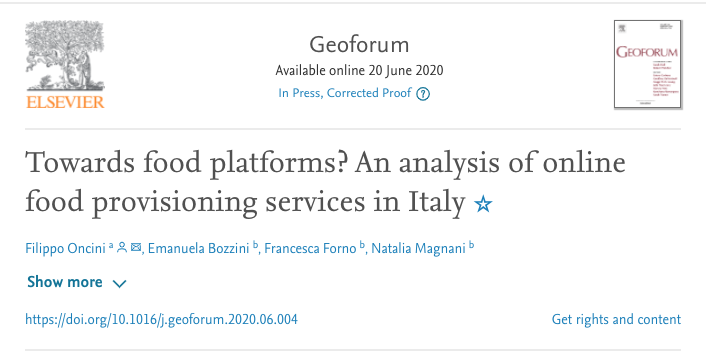
Abstract:
This paper makes use of a unique dataset on the population of online food provisioning services to shed light on the organization of the food e-commerce in the Italian context. Building on the opposition between pipelines and platforms, we propose a categorization of the different forms of organization within each business model and examine how they differ. Hence, we concentrate on food plforms to discuss the implications this new business model may have for both producers and consumers. We highlight three critical areas that warrant further attention. First, in view of the EU regulatory framework, we discuss the potential implications for consumer protection; second, we reflect on the ways the potential success of the platform model could change labour market relations between producers and platform owners; third, we point out the differences and similarities platforms have with alternative food networks (AFNs). In the conclusion, we reflect on future research developments and on the possible trajectories that online grocery shopping could take in light of the disruption caused by COVID19.
https://www.sciencedirect.com/science/article/abs/pii/S0016718520301561?via%3Dihub

